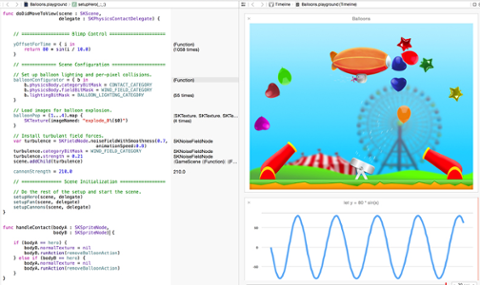 When Apple rolled out Swift last summer, it expected its new programming language to eventually replace Objective-C, which developers have used for years to build iOS and Mac OS X apps. Thanks to Apple’s huge developer ecosystem (and equally massive footprint in the world of consumer devices), Swift quickly became one of the most buzzed-about programming languages, as cited by sites such as Stack Overflow. And now, according to new data from TIOBE Software, which keeps a regularly updated index of popular programming languages, Swift might be seriously cannibalizing Objective-C. On TIOBE’s latest index, Objective-C is ranked fourteenth among programming languages, a considerable drop from its third-place spot in October 2014. Swift managed to climb from nineteenth to fifteenth during the same period. “Soon after Apple announced to switch from Objective-C to Swift, Objective-C went into free fall,” read TIOBE’s text accompanying the data. “This month Objective-C dropped out of the TIOBE index top 10.” If the present trend holds, it seems likely that, within a few months, Swift could very easily outrank Objective-C. Apple’s plans to make Swift open-source could also help spur its adoption (later this year, the company will release the source code under an OSI-approve permissive license, while encouraging contributions from the community). The current version of Swift, 2.0, includes features such as an error-handling model that works seamlessly with Apple SDKs, and the ability to display error messages if a developer attempts to use an API too new for the target OS. Check out Dice’s recent breakdown of the Swift’s most interesting new tweaks.
When Apple rolled out Swift last summer, it expected its new programming language to eventually replace Objective-C, which developers have used for years to build iOS and Mac OS X apps. Thanks to Apple’s huge developer ecosystem (and equally massive footprint in the world of consumer devices), Swift quickly became one of the most buzzed-about programming languages, as cited by sites such as Stack Overflow. And now, according to new data from TIOBE Software, which keeps a regularly updated index of popular programming languages, Swift might be seriously cannibalizing Objective-C. On TIOBE’s latest index, Objective-C is ranked fourteenth among programming languages, a considerable drop from its third-place spot in October 2014. Swift managed to climb from nineteenth to fifteenth during the same period. “Soon after Apple announced to switch from Objective-C to Swift, Objective-C went into free fall,” read TIOBE’s text accompanying the data. “This month Objective-C dropped out of the TIOBE index top 10.” If the present trend holds, it seems likely that, within a few months, Swift could very easily outrank Objective-C. Apple’s plans to make Swift open-source could also help spur its adoption (later this year, the company will release the source code under an OSI-approve permissive license, while encouraging contributions from the community). The current version of Swift, 2.0, includes features such as an error-handling model that works seamlessly with Apple SDKs, and the ability to display error messages if a developer attempts to use an API too new for the target OS. Check out Dice’s recent breakdown of the Swift’s most interesting new tweaks.



